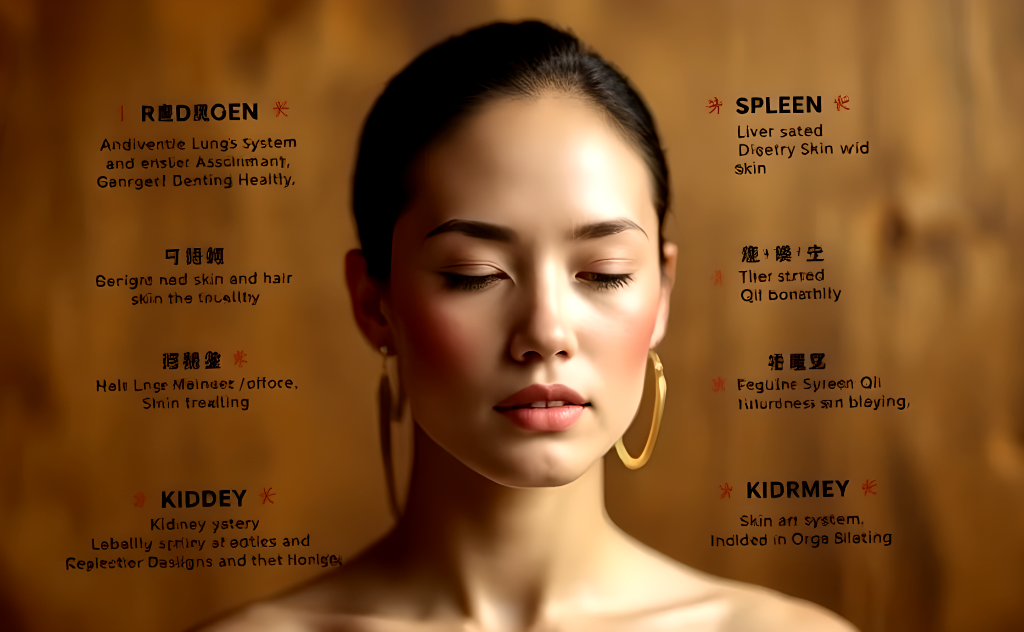7 Shocking Foods That Transform Your Skin Overnight
Ever looked in the mirror and wished your dull, tired skin could magically transform by morning? You’re not alone. While the beauty industry floods us with endless creams and serums promising miracle results, the real secret to radiant skin might be hiding in your kitchen right now. As Dr. Howard Murad wisely points out, “Healthy skin is a reflection of overall wellness” – suggesting that what you put inside your body might be more powerful than what you apply to its surface. 💫
The connection between diet and skin health is more profound than most realize. Those pesky breakouts? That unexpected dryness? The premature fine lines? They could all be direct responses to what’s on your plate. Research shows that specific nutrients found in everyday foods can dramatically influence skin hydration, elasticity, and cellular regeneration – sometimes with results visible in as little as 24 hours! When you swap sugary snacks for antioxidant-rich alternatives or increase your omega-3 intake, you’re not just making a dietary choice – you’re making a beauty decision that your skin will thank you for almost immediately. ✨
In this comprehensive guide, we’ll explore the fascinating skin-health connection, reveal essential nutrients that promote radiance, and uncover how proper hydration forms the foundation of beautiful skin. We’ll also examine lifestyle factors that impact your complexion, suggest smart dietary swaps for better skin, and present a holistic approach that combines internal nourishment with external care. Get ready to discover how simple changes to your diet can revolutionize your skin – often with results you can see when you wake up tomorrow morning.
Understanding the Skin-Health Connection
The relationship between our skin’s appearance and our overall health is far more profound than many realize. Your skin doesn’t merely cover your body—it reflects what’s happening inside it, serving as a visible indicator of your internal wellness.
The Relationship Between Overall Wellness and Skin Appearance
According to Traditional Chinese Medicine (TCM), multiple organ systems directly influence skin health. The Lung system governs skin and hair, controlling pores and respiration. When your Lung Qi is strong, your skin appears radiant; when weakened, dryness and infections may develop. Similarly, the Spleen system’s role in digestion and nutrient assimilation directly impacts skin nourishment—a robust Spleen Qi supports glowing skin, while weakness results in dullness and bloating.
The Liver system maintains skin clarity by regulating Qi and blood flow, preventing toxin accumulation that can lead to conditions like acne and eczema. Meanwhile, the Kidney system influences skin vitality and aging processes, with deficiencies potentially causing premature aging signs.
These internal connections explain why purely external treatments often fall short in resolving persistent skin issues. When we address the root causes of skin problems through internal health optimization, the results are more substantial and lasting.
Dr. Murad’s Perspective on Internal Health and External Beauty
Dr. Murad, a pioneer in integrative dermatology, emphasizes that beautiful skin results from comprehensive wellness, not just topical treatments. His approach aligns with TCM principles, recognizing that emotional well-being significantly impacts skin health. Stress management techniques like meditation, acupuncture, and qigong help maintain balanced Qi flow, directly improving skin appearance.
This perspective embraces the notion that skin issues often signal internal imbalances. For instance, acne may indicate Heat and Dampness pathogenic factors, requiring dietary adjustments rather than just topical solutions.
How Improving Internal Health Reduces the Need for External Treatments
When we optimize our internal systems, the skin’s natural healing abilities flourish. The TCM approach promotes lifestyle practices that enhance both physical and emotional health, resulting in vibrant skin that requires less external intervention.
By addressing Dampness and Heat through dietary changes and supporting organ systems with appropriate herbs and foods, many common skin conditions improve naturally. For example, supporting Kidney health with herbs like fo-ti can maintain skin youthfulness, while consuming easily digestible foods strengthens the Spleen system, enhancing nutrient delivery to the skin.
This holistic approach demonstrates why food choices impact skin so dramatically. Rather than relying solely on expensive creams or treatments, focusing on foods that nourish these internal systems creates sustainable skin transformation that works from within.
Now that we understand how internal health directly influences skin appearance, let’s explore the specific essential nutrients that can radically transform your skin overnight in the next section, “Essential Nutrients for Radiant Skin.”
Essential Nutrients for Radiant Skin
Now that we’ve explored the fundamental connection between our diet and skin health, let’s dive into the specific nutrients that can transform your complexion. Understanding which nutrients directly impact your skin can help you make informed dietary choices for that coveted radiant glow.
The Power of Omega-3 Fatty Acids for Cell Membrane Health
Insufficient dietary fats often lead to dry, wrinkled skin—a clear sign your skin cells need nourishment. Omega-3 fatty acids, a type of polyunsaturated fat, play a crucial role in maintaining skin moisture and flexibility. These essential fats contribute to healthier cell membranes while potentially reducing inflammation and even inhibiting skin cancer growth. Fatty fish like salmon and mackerel are excellent sources of these nutrient-rich foods for glowing skin, making them valuable additions to your diet for radiant skin.
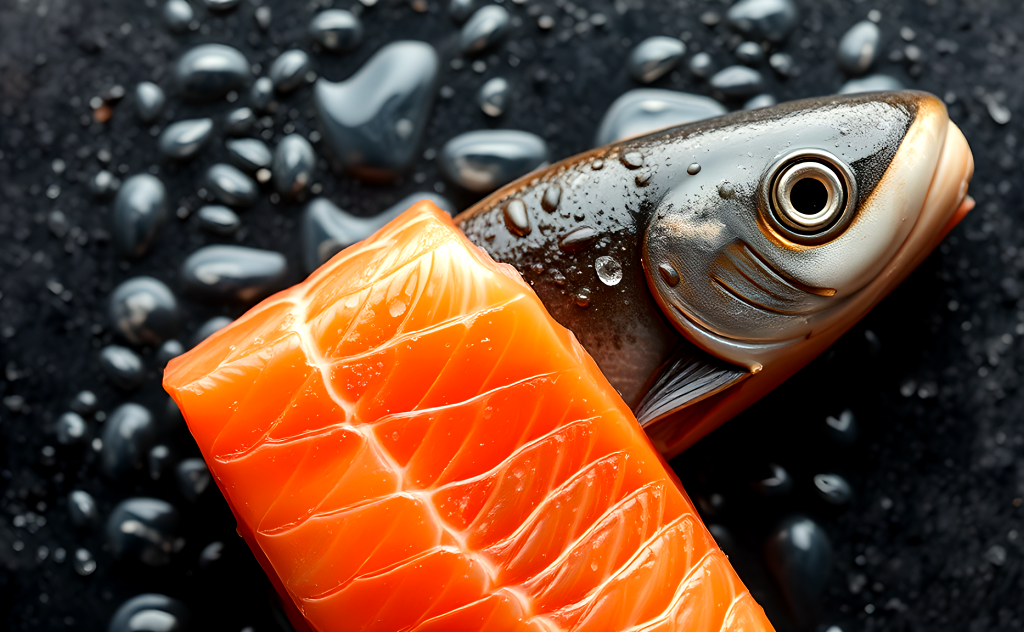
Critical Vitamins A, C, and E for Skin Regeneration and Protection
The antioxidant trio of vitamins A, C, and E works synergistically to protect and rejuvenate your skin:
-
Vitamin A helps prevent sun damage and maintains skin moisture, supporting cell production and reducing visible signs of aging. Find it abundantly in sweet potatoes, carrots, and leafy greens.
-
Vitamin C is essential for collagen stability and healing processes. This powerful antioxidant protects skin cells from damage while aiding in collagen synthesis—the protein responsible for skin firmness. Citrus fruits and leafy greens are excellent sources.
-
Vitamin E absorbs harmful UV light energy and works in tandem with vitamin C to strengthen cell membranes, protecting against environmental damage. Nuts and seeds provide rich amounts of this skin-protecting vitamin.
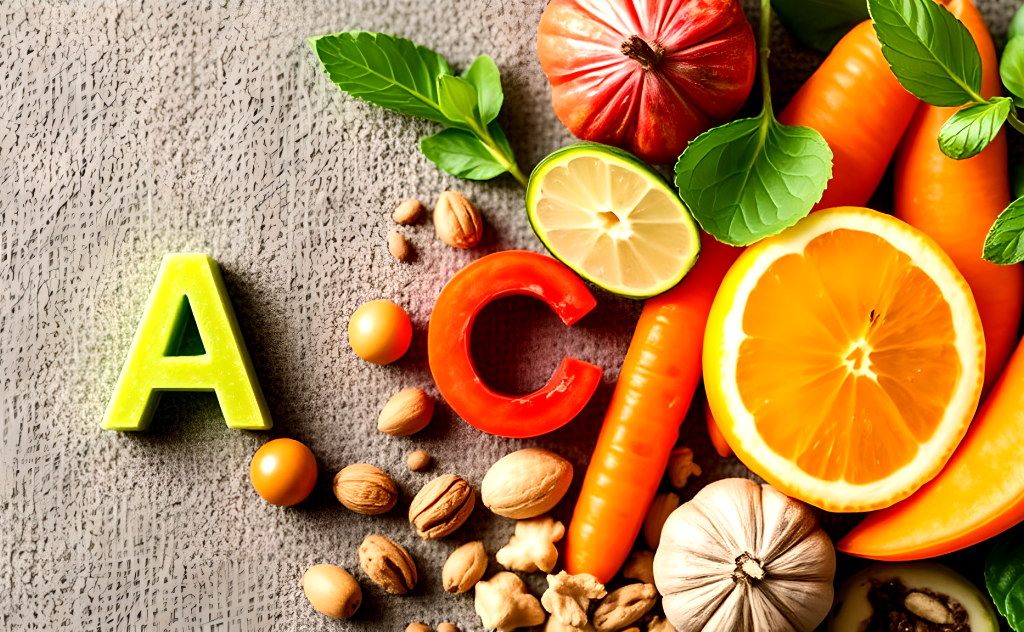
Protein’s Role in Collagen and Elastin Production
Protein is fundamental for creating amino acids, which are the building blocks of collagen and keratin—essential components for skin structure and integrity. These proteins help protect against UV damage while maintaining skin elasticity and firmness. Including adequate protein from various sources ensures your skin has the necessary materials for regeneration and repair, contributing significantly to foods that improve skin elasticity.
Why Whole Foods Outperform Supplements for Skin Nutrition
While supplements might seem convenient, whole foods provide comprehensive nutritional benefits that isolated supplements simply cannot match. A diet rich in fruits, vegetables, and specific foods like fatty fish, leafy greens, eggs, and avocados delivers nutrients in their natural forms, with cofactors that enhance absorption and utilization. This holistic approach to nutrition ensures your skin receives the full spectrum of benefits these nutrients offer.
Additionally, trace minerals like zinc and selenium play important supporting roles in skin health. Zinc aids in healing and protects against UV damage, while selenium helps antioxidants defend the skin from harmful rays—with deficiencies linked to higher skin cancer risks.
With these essential nutrients incorporated into your daily diet, your skin will be well-nourished from within. Next, we’ll explore how hydration serves as the foundation of skin health, complementing these nutrients to further enhance your skin’s natural radiance.
Hydration: The Foundation of Skin Health
Now that we’ve explored the essential nutrients that support radiant skin, let’s dive into perhaps the most fundamental aspect of skin health: hydration. Building on our understanding of how nutrients work from within, we’ll see how proper hydration creates the perfect foundation for those nutrients to function optimally.
Daily Fluid Intake Recommendations for Optimal Skin Hydration
The skin’s outer layer contains approximately 30% water, which is crucial for maintaining elasticity and a healthy appearance. Dermatologists recommend drinking around 2 liters (about 8 glasses) of water daily to support overall skin health. This recommendation becomes even more important during hot weather when the risk of dehydration increases significantly.
While some might claim that increased water intake directly reduces wrinkles, scientific research shows mixed results. A small pilot study found that drinking 2.25 liters of water daily for four weeks produced varied outcomes, with the most noticeable benefits occurring in individuals who previously consumed little water. These participants experienced increased skin thickness, suggesting improved hydration.
However, it’s important to note that drinking water alone cannot reverse age-related skin changes. As dermatologist Joshua Zimm points out, aging naturally causes skin thinning due to decreased collagen and elastin production – something that increased water intake cannot fully counteract.
Water-Rich Fruits and Vegetables That Boost Skin Moisture
Beyond simply drinking water, consuming water-rich foods provides an excellent way to boost skin hydration. Fruits and vegetables with high water content deliver both moisture and essential nutrients directly to your skin cells.
These hydrating foods help enhance blood circulation, ensuring vital nutrients and oxygen reach your skin cells efficiently, contributing to that natural, healthy glow we all desire. When your skin is properly hydrated from within, you’ll notice fewer dry, flaky patches and experience less uncomfortable tightness, particularly after washing your face.
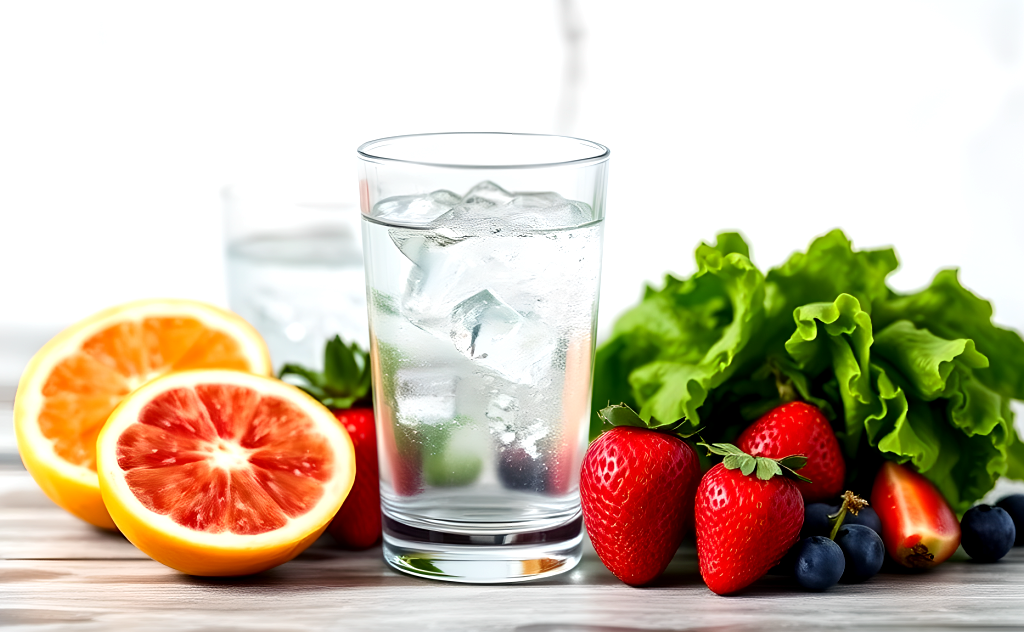
Green Tea Benefits for Reducing Inflammation Inside and Out
Green tea offers exceptional benefits for skin health through its hydrating and anti-inflammatory properties. Regular consumption helps balance oil production in the skin – particularly important since dehydrated skin tends to produce excess sebum as a compensatory mechanism, potentially leading to breakouts.
The detoxifying properties of proper hydration, especially from sources like green tea, help flush toxins from the body that might otherwise manifest as skin issues. When your skin is well-hydrated, it displays improved elasticity and resilience against environmental stressors.
You can easily assess your hydration levels with a simple fingernail test: when you press on your nail, a well-hydrated person will see the color return immediately, while delayed color return suggests dehydration that may be affecting your skin’s appearance.
With this foundation of proper hydration established, we’ll next explore how various lifestyle factors can further transform your skin’s appearance and health. The hydration strategies we’ve discussed create the perfect groundwork for the lifestyle modifications we’ll examine next, showing how everything from sleep patterns to stress management complements your hydration efforts for truly transformative results.
Lifestyle Factors That Transform Your Skin
Now that we’ve covered how proper hydration forms the foundation of skin health, it’s important to recognize that several lifestyle factors can dramatically impact your skin’s appearance and health, complementing the benefits of proper hydration.
Stress Management Techniques to Prevent Skin Problems
According to Mayo Clinic research, managing stress is crucial for maintaining healthy skin. Chronic stress can trigger or worsen various skin conditions and accelerate the aging process. Implementing effective stress management techniques can help prevent these issues:
- Ensure you get adequate sleep each night
- Engage in regular physical activity
- Practice relaxation techniques like meditation or deep breathing
- Set realistic goals and boundaries in your daily life
These practices not only improve your overall well-being but directly reflect in your skin’s appearance by reducing inflammation and preventing stress-related breakouts.
Exercise Benefits for Blood Circulation and Skin Elasticity
Physical activity does more than just keep your body fit—it’s essential for skin health too. Regular exercise:
- Improves blood circulation, delivering vital nutrients and oxygen to skin cells
- Helps regulate hormones that can affect skin conditions
- Enhances the body’s natural detoxification process through sweating
- Contributes to maintaining skin elasticity and a youthful appearance
Board-certified dermatologists recommend incorporating at least 30 minutes of moderate exercise into your daily routine for optimal skin benefits.
Sleep Quality and Its Impact on Skin Renewal
The term “beauty sleep” exists for good reason. During sleep, your skin undergoes its most intensive renewal process:
- Cell regeneration accelerates
- Collagen production increases
- Inflammatory responses decrease
- Stress hormones like cortisol are regulated
Mayo Clinic emphasizes that poor sleep quality can lead to increased signs of aging, slower healing, and a compromised skin barrier. Aim for 7-9 hours of quality sleep per night to support your skin’s natural renewal cycle.
Mindfulness Practices That Reflect on Your Complexion
Mindfulness isn’t just beneficial for mental health—it has tangible effects on your skin:
- Reduces stress-induced inflammation
- Helps maintain consistent skincare routines
- Promotes awareness of harmful habits (like touching your face)
- Encourages a positive relationship with your body and appearance
Incorporating even brief mindfulness sessions into your daily routine can help manage stress levels and improve your skin’s condition over time.
With these lifestyle adjustments in place, your skin will be better prepared to benefit from the nutritional changes we’ll discuss next. In the upcoming section on Smart Dietary Swaps for Better Skin, we’ll explore how specific food choices can further enhance your skin’s transformation, building upon the lifestyle foundation we’ve established here.
Smart Dietary Swaps for Better Skin
Now that we’ve covered how lifestyle factors impact your skin health, let’s explore some smart dietary substitutions that can dramatically improve your skin’s appearance. The foods you consume play a crucial role in skin health, with certain choices either contributing to or mitigating issues like inflammation, dryness, and oxidative stress.
Replacing Sugary Snacks with Fresh Fruit for Antioxidant Power
One of the most beneficial changes you can make is swapping processed, sugary snacks with fresh fruits. According to skin health experts, high-glycemic foods can exacerbate skin inflammation and accelerate premature aging. Fresh fruits, on the other hand, are packed with antioxidants that combat free radicals—unstable molecules that damage skin cells through oxidative stress.
Citrus fruits and bell peppers are particularly valuable for skin health due to their high vitamin C content, which is essential for skin repair and protection. Tomatoes offer lycopene, another powerful antioxidant that promotes skin vitality. By making this simple swap, you’ll not only reduce inflammation but also provide your skin with the nutrients it needs to maintain a healthy, radiant appearance.
Dark Chocolate’s Skin-Enhancing Properties When Consumed in Moderation
While cutting back on processed foods is important for skin health, you don’t have to eliminate all treats. Dark chocolate, when consumed in moderation, can actually benefit your skin. It’s rich in polyphenols, compounds that protect the skin from damage and promote overall skin health.
Unlike sugary milk chocolate varieties, high-quality dark chocolate with minimal added sugar provides these beneficial polyphenols without triggering the inflammation associated with high-glycemic foods. This makes it an excellent swap for conventional desserts that can harm your skin.
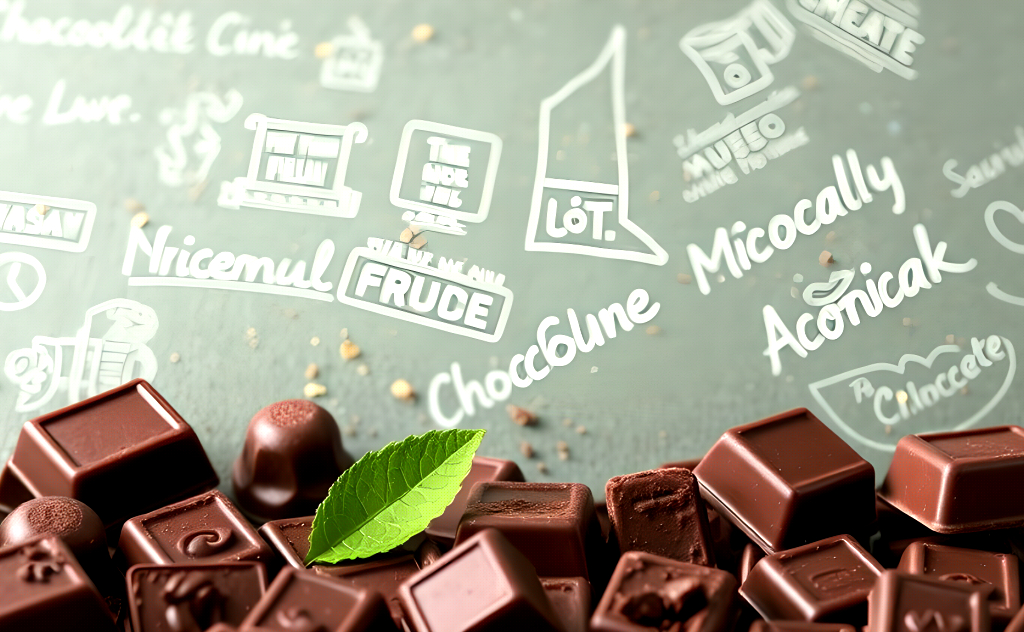
High-Protein Diet Strategies to Reduce Acne Symptoms
Incorporating more lean proteins into your diet can significantly improve skin health, particularly for those struggling with acne. Proteins are essential building blocks for collagen and elastin—compounds that maintain skin structure and elasticity.
By swapping processed carbohydrates with lean protein sources, you can help balance hormones that contribute to acne formation. Additionally, proteins support skin regeneration, which is crucial for healing existing skin issues and promoting a clearer complexion.
To maximize benefits, focus on proteins that also contain omega-3 fatty acids, such as fish. These healthy fats help keep skin hydrated from within and further reduce inflammation that can trigger breakouts.
With these dietary swaps implemented into your routine, you’ll be well-positioned to take a more holistic approach to skin care. In the next section, we’ll explore how combining these internal nutritional strategies with external skin care practices can create a comprehensive system for achieving and maintaining your best skin.
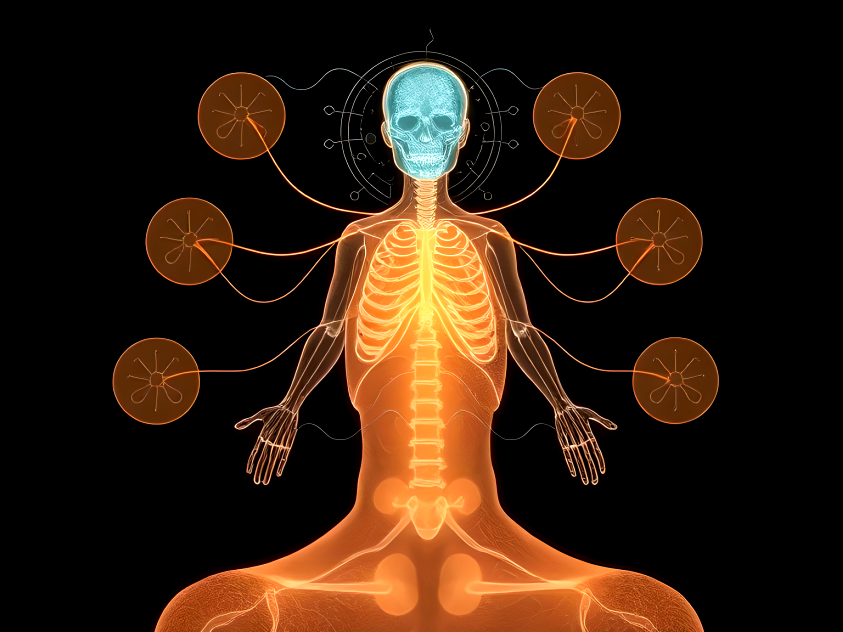
Holistic Approach: Combining Internal and External Care
Now that we’ve explored smart dietary swaps for better skin, it’s important to understand that true skin transformation happens when we combine nutritious foods with complementary external care. This holistic approach recognizes that radiant skin comes from both nourishing your body from within and supporting it with targeted topical treatments.
Complementary Topical Treatments That Enhance Nutrition-Based Improvements
The ancient wisdom of Ayurveda teaches us that skin health begins with internal balance, particularly digestive health. While nutrient-rich foods create the foundation for glowing skin, non-toxic, plant-based topical products can enhance these internal improvements. According to Ayurvedic principles, external skincare should work in harmony with your internal efforts, addressing your unique skin constitution rather than just masking symptoms.
For optimal results, consider pairing your skin-friendly diet with gentle, natural cleansers and moisturizers that don’t disrupt your skin’s natural balance. This complementary approach supports the internal work your nutritious foods are doing while providing immediate external benefits.
Antioxidant-Rich Products That Work in Harmony with Internal Health
While consuming antioxidant-rich foods protects your skin from within, applying antioxidants topically creates a powerful synergistic effect. Look for products containing vitamins C and E, which can enhance the protective benefits of these same nutrients in your diet.
The reference material emphasizes that true skincare starts from within, but external products containing similar beneficial compounds can amplify these effects. For example, if you’re consuming omega-3 fatty acids through your diet, consider using topical products with plant oils that contain similar fatty acids to support skin barrier function.
As seasons change, adjust both your diet and your topical products to address your skin’s changing needs—focusing on hydration during winter months and lighter products with sun protection during summer.
Regular Exfoliation to Maximize the Benefits of Internal Skin Care
To fully benefit from your internal skin care regimen, regular exfoliation is essential. This practice removes dead skin cells that can prevent nutrients from reaching deeper layers of skin. The holistic approach recognizes that healthy skin depends on proper circulation and lymphatic drainage, which exfoliation can help stimulate.
According to the reference material, lymphatic system health is closely tied to skin appearance. Gentle exfoliation supports lymphatic drainage, helping to remove toxins and allowing your skin to better absorb the nutrients you’re providing through your diet. Physical activity similarly enhances blood circulation, delivering nutrients from your skin-supporting foods to your skin cells more efficiently.
Remember that exfoliation, like dietary changes, should be approached mindfully and individually. Just as the reference material cautions against overgeneralizing herbal remedies without personalized consideration, exfoliation routines should be tailored to your specific skin type and concerns.
By embracing this holistic approach that combines nutrient-rich foods with complementary external care, you can achieve more dramatic skin transformations than either method could produce alone.
Your journey to radiant skin doesn’t require expensive treatments or complicated routines. As we’ve explored throughout this post, the foods you consume can dramatically transform your skin overnight by providing essential nutrients that work from within. The connection between your diet and skin health is undeniable, with omega-3 fatty acids, vitamins A, C, and E, and proper hydration serving as the foundation for that coveted glow. Remember Dr. Howard Murad’s wisdom: healthy skin reflects good overall health, meaning those internal improvements significantly influence your external appearance.
While implementing these dietary changes, don’t forget that a holistic approach yields the best results. Combine your new nutrition habits with stress management techniques, regular exercise to improve blood flow, and smart swaps like replacing sugary snacks with antioxidant-rich fruits. Your skincare products can complement these internal efforts—look for formulations containing beneficial vitamins and antioxidants. By nurturing your skin from both inside and out, you’re not just transforming your appearance overnight but building sustainable habits for lifelong radiance. Start with just one change today, and watch as your skin reveals its natural beauty tomorrow.

